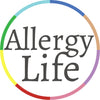The importance of allergy testing before your young child starts school
By Dimi Angelopoulos and Staff Writers, January 2022
As a parent, guardian or carer, there are many considerations to be made when you send your young child to daycare, preschool, kindergarten, prep or school. And whilst it may be a time of great excitement, it may also be a time of uncertainty. Your child is leaving your supervision – perhaps for the first time - and some of the considerations you will be making will include an assessment of the environment your child will be in and what your child will be eating.
Eating at school is a different experience than eating at home – particularly for a child starting kindergarten or prep. They will be expected to eat independently, and alongside other children who may bring in unfamiliar foods or foods they have not tried before and may be allergic to.
Allergies, especially food allergies, may significantly impact many aspects of life, and early awareness is key to managing your child's allergies safely and effectively.
WHO TO SPEAK TO IF YOU ARE UNSURE ABOUT YOUR CHILD'S ALLERGY STATUS?
If you are unsure whether your child has allergies, please speak to a qualified health care provider (such as a GP) who can help you understand, test, diagnose, and provide treatments. They can also help and guide you on managing individual allergies and set up an Allergy Action Plan in the case of a reaction (if your child has an allergy).
If a GP is your first point of contact, a GP can also provide you with referral services to allergy specialists across testing, diagnosis and management. This includes referrals to health care providers specific to your child's needs, such as allergists, dermatologists, immunologists or paediatricians.
THE IMPORTANCE OF ALLERGY TESTING BEFORE SENDING YOUR CHILD TO DAYCARE, PRESCHOOL, KINDERGARTEN, PREP OR SCHOOL
Allergies can have a significant impact on many aspects of life. If you suspect or know your child is allergic, you need to understand the risks this places your child under, especially if their allergic reactions can be severe and potentially life-threatening. Any uncertainty could mean that you are unaware that your child is at risk of anaphylaxis – a severe type of allergic reaction that can be fatal and should be treated as a medical emergency. On the other hand, it is also good to know what your child is not allergic to. This will help avoid unnecessary restrictions being imposed on your child.
ALLERGY TESTING - BENEFITS
Allergy testing typically involves a skin prick or blood test but may include other testing methods based on the allergies being tested for. Testing is usually performed on individuals with suspected allergies to certain foods, pollen, insects, latex, mould, pets, skin-related and drugs.
"Allergy tests are routinely provided to many children by qualified allergy health care providers, who understand how to manage the needs of children, even small children."
Allergy testing is extremely helpful in diagnosing allergies and will enable you to manage your own and your child's lifestyle with greater confidence. If completed at a younger age, there is also an early opportunity to educate your child on building positive actions and personal contingencies to reduce risks. This includes making others allergy aware (Carry, Show and Tell) to be safer with and without your supervision.
For example-
- If your child has food allergies, this is an opportunity to prepare them on high-risk foods to avoid when eating away from home, such as while at school, excursions, camps or parties. This includes what emergency medication to carry and what to do in the case of a reaction.
- If your child has environmental allergies, this is an opportunity to prepare them for risk situations where their allergens may be present (such as parks, pets at a friends home, dusty places, etc). This includes preparing them to avoid these risk situations where possible, and if unavoidable, preparing them on what to do in the case of a reaction.
And more importantly, you will be able to accurately inform the people and institutions looking after your child (carers and educational institutions) on your child's allergies and the medications/treatments to use in the case of a reaction. This may include providing them with the emergency medication and with your child's Action Plan, where applicable.
Preparing your child and those looking after them will help provide more support for your child's health, wellbeing and safety. And knowing that there are support mechanisms in place will give you assurance and peace of mind when your child is not under your care.
Please speak to a qualified health care provider (such as a GP) for more information. Based on your child's clinical history, they will advise you on the best options for allergy testing, treatments, costs, and the risks of doing any test or treatment.
If you are unable to find assistance through a local qualified health care provider, don't hesitate to get in touch with Allergy Life Australia, who will be able to provide you with information to assist with this.
-------
This insight was contributed by Dimi Angelopoulos and Staff Writers. We thank their efforts, creativity and care in bringing these insights to helping Australians with allergies live a safer and happier allergy life. The information on this insight has been credibly sourced. If you'd like to learn more, please get in touch with us.
The information provided on Allergy Life Australia is to generally educate and inform you about living with allergies, intolerances and conditions, and is not intended as medical instruction or as a substitute for diagnosis, examination and advice by a qualified health care provider.




